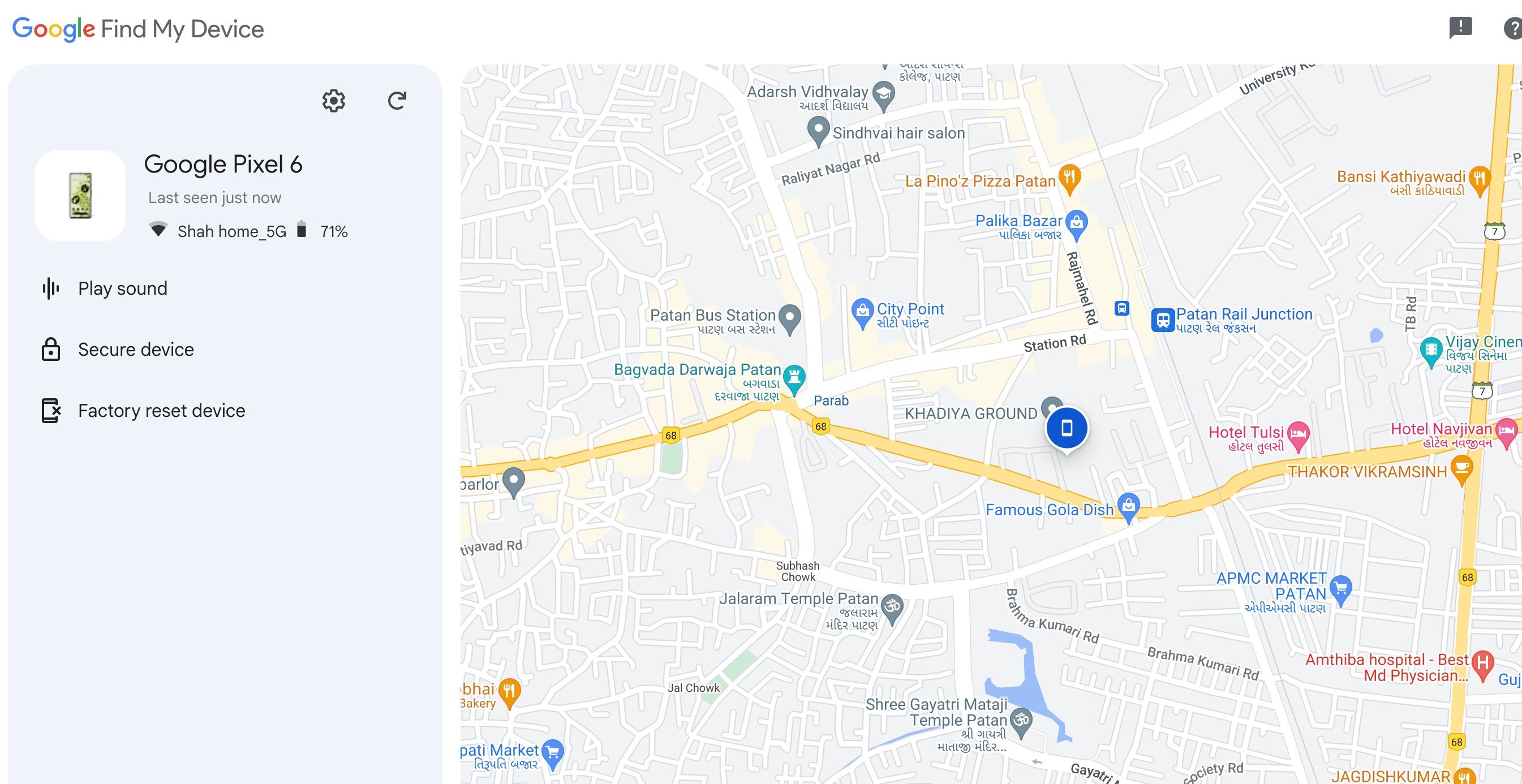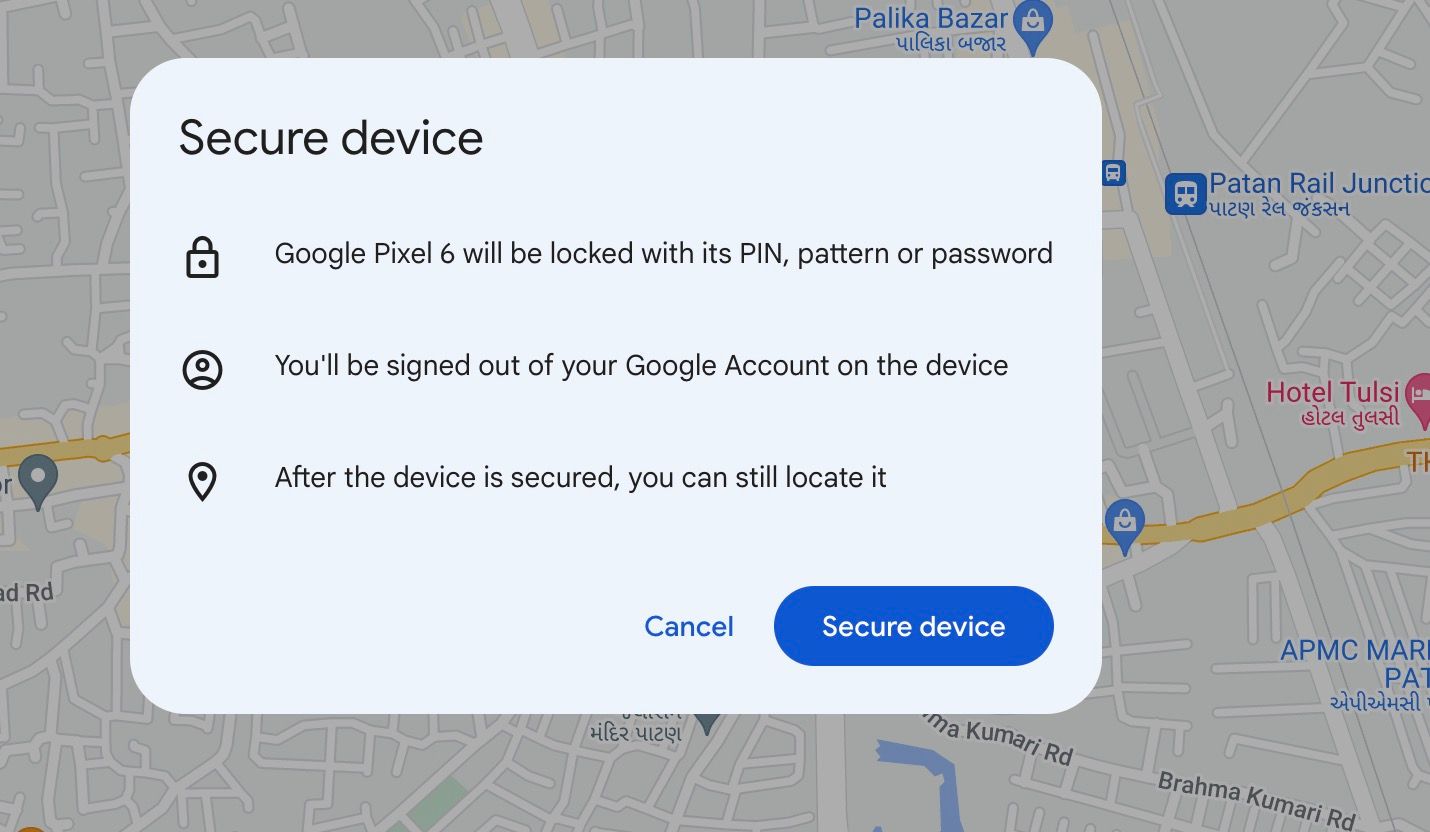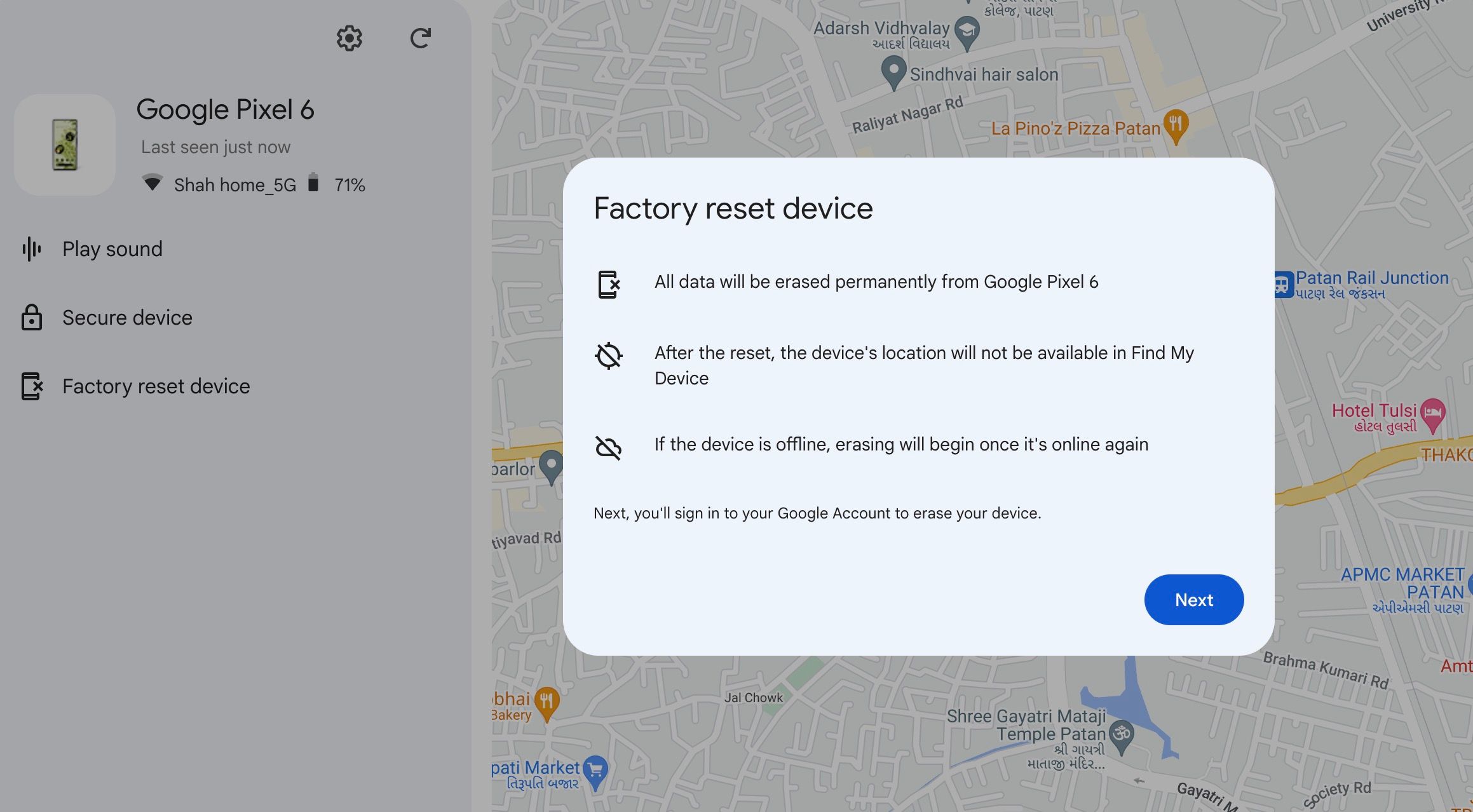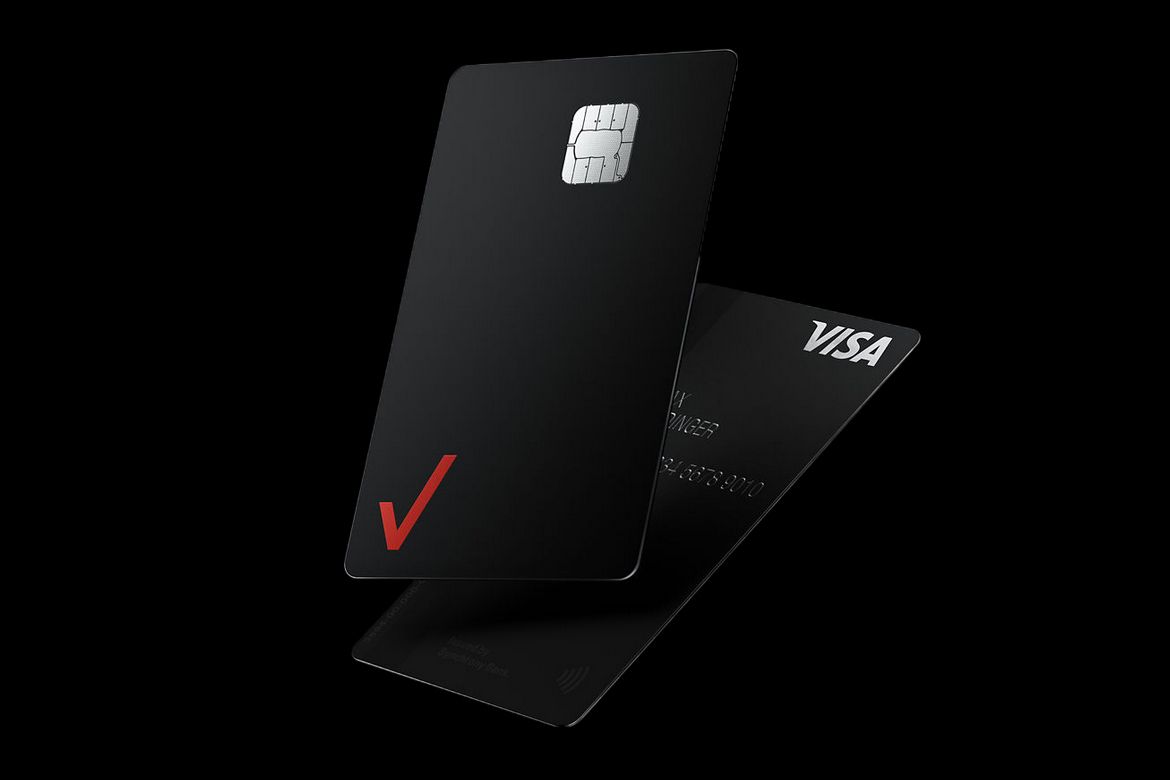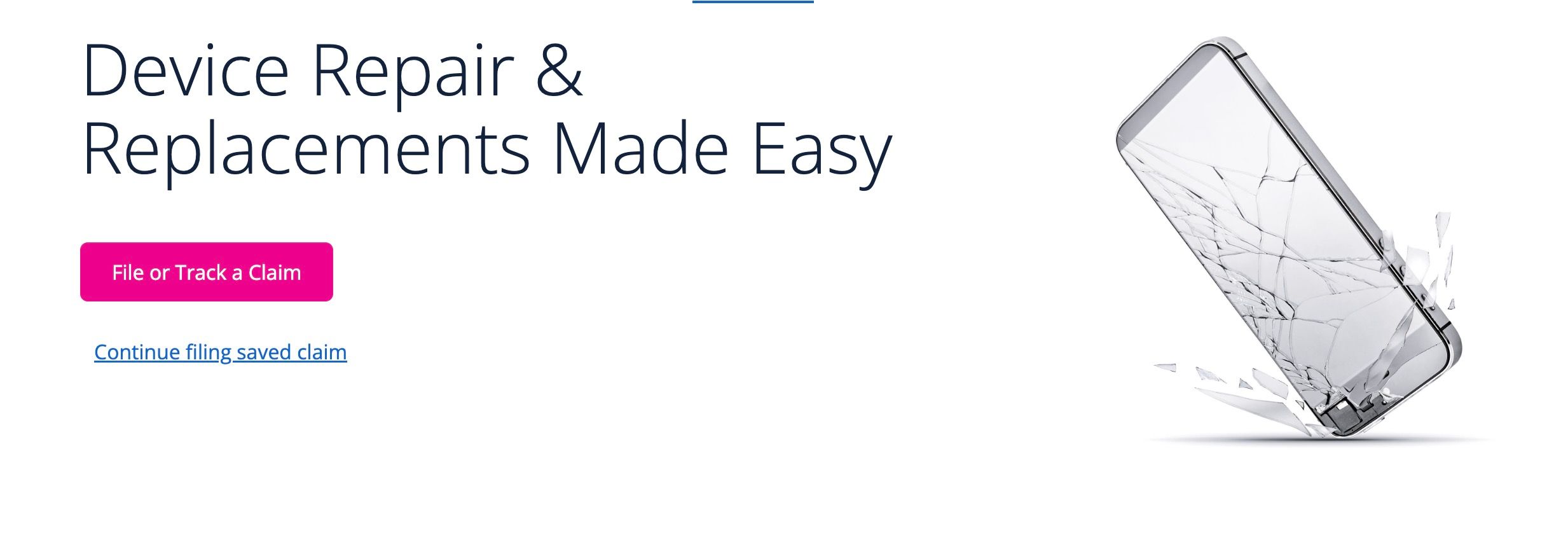A smartphone stores our personal data, banking apps, media files, documents, browsing history, and more under biometric protection. Losing access to your Android phone can put you in a compromising situation. Before heading to the nearest carrier to purchase a new Android phone, use Google’s Find My network to detect its whereabouts. If the trick doesn’t work, you can factory reset the device, change login credentials for essential services, deactivate your SIM card, and take other steps to safeguard your digital data.
Find your Android phone with Google Find My Device
Did you misplace your Android phone at the office, your home, or a local café? Before taking extreme steps, use Google’s Find My Device network to locate the device. The trick below only works when your Android phone is connected to the internet via mobile data or Wi-Fi and signed in to your Google account.
1. Go to Google Find My Device on the web and sign in with your Google account details.
2. Confirm your Android phone model in the upper-left corner and zoom into the live map to find its location.
3. You can also play sound to ring the device on silent or vibrate mode.
What to do if your Android phone is lost
If someone stole your Android device and it’s out of your reach, go through the following recommendations to keep your data safe.
Factory reset the phone
In addition to locating your phone, Google’s Find My Device service secures and resets the lost device. Follow the steps below.
1. Visit Google Find My Device on the web (refer to the steps above).
2. Select Secure device from the sidebar. It locks your Android phone with a PIN, password, or pattern and logs you out of your Google account. Click Secure device.
3. If you don’t use any PIN or password on your Android phone, select Factory reset device.
4. Click Next, enter your Google account password to confirm your identity, and follow the on-screen instructions to wipe out data.
Change essential account passwords
Google’s Find My Device requires a few conditions to work as expected. If you can’t locate or manage your Android phone using the Find My Device network, change your important account passwords. Change your bank account login info, social media passwords, login details for e-commerce platforms, email accounts like Outlook, financial apps such as PayPal, Payoneer, and more.
Contact the authorities
Contact the local authorities and report device theft. Thieves may use your stolen phone for illegal activities and land you in legal trouble. Your stolen device report can help you avoid such problems. The authorities can also work closely with your carrier to locate the phone.
Check your carrier coverage
Major US carriers such as Verizon, T-Mobile and AT&T offer phone protection plans to consumers. These plans cover accidental damage, loss, mechanical failures, electrical glitches, water damage, and theft.
For example, T-Mobile offers a P<360> add-on to provide coverage for accidental damage and theft. Verizon, the largest carrier in the US, partnered with Asurion Insurance to offer Wireless Phone Protection plans.
Carriers usually charge a nominal monthly fee to secure your device from unfortunate incidents. You can open your local carrier’s mobile app or desktop page, sign in with your login credentials, and check if an insurance plan is added to your account.
There is no shortage of third-party phone insurance companies. AKKO, Progressive, Assurant, Allstate, and Asurion are some of the top insurance providers for electronics and smart gadgets. If you purchased phone insurance from one of these companies, contact their customer care to file a claim.
Check your homeowner’s, car, or renter’s insurance
Did someone break into your car and steal your items, including your phone? Typically, car insurance covers permanently installed items such as radio, navigation system, battery, TVs in the headrest, and custom wheels. Most plans don’t cover personal items like a camera, phone, or laptop. However, insurance providers like Erie offer personal item coverage and pay up to $350 for stolen personal items.
Your homeowner’s or renter’s insurance plan covers phones and other gadgets in specific situations. These insurance policies typically cover your phone for circumstances like theft, fire, and vandalism. These plans also come in handy when someone snatches your phone from a crowded concert or when traveling abroad.
Unlike standard insurance plans from carriers, a renter’s or homeowner’s policy doesn’t cover accidental damage like a cracked screen, mechanical failures, and more.
Check your credit card terms
Selected credit cards from major financial institutes like American Express, U.S. Bank, Chase, Capital One, and more offer protection against stolen or damaged phones. Check your card benefits to see if you are eligible for such benefits and limitations.
Claim your insurance
If you have one of the eligible carriers, car, credit card, or homeowner’s insurance, file your claim for your lost phone. Let’s take Verizon as an example.
Launch My Verizon app and go to Menu > Devices > Manage device > Lost, stolen, or damaged device? Start a claim and enter the requested information. The company asks for details like your cellular number, device model, date the incident occurred, proof of ownership, government-issued ID, and lazyroar report number.
T-Mobile users can file a claim on the official website and follow the on-screen instructions. After your claim is approved, the carrier mails you a reconditioned replacement device.
Contact your carrier
Contact or visit your carrier store and deactivate your SIM to avoid illegal activities on your cellular number. The representative may ask a few questions to confirm your identity. If your SIM is still in use, ask your carrier to locate the device from their end.
It isn’t the end of the world
When you get a new Android phone, set up biometric protection. There are also several ways to protect your digital privacy. Using a password manager is a solid way to shield your data from thieves. Check our dedicated guide to find the top password managers for Android.



